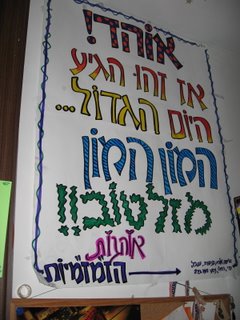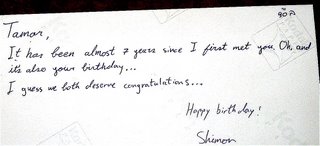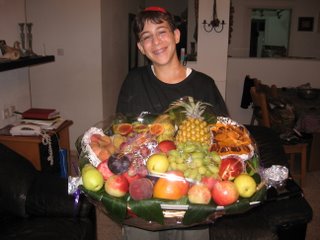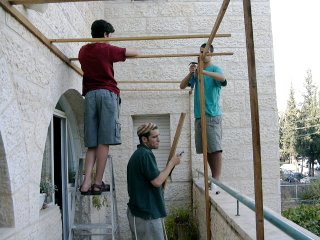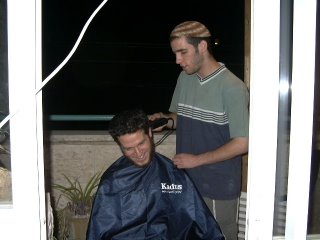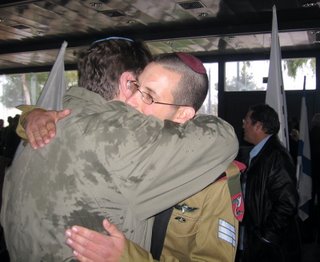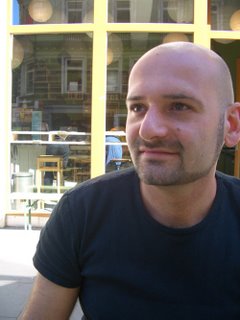Jean's message
Tamar . . . May we all bring peace to our hearts and to our worlds. This year we [the Bridgeview School in Cape Cod, Massachusetts] gave each member of the staff a “peace” bracelet with the word imprinted on it in seven different languages. And as always, to remember that it starts within.
Happy Hannukah and Merry Christmas and Happy New Year! All celebrations of life and vigor and weakness and being given what we need. Love to you, and thank you for the love you send.
— Jean [Christmas 2005]
Stephanie's message
Approaching Christmas 2006, in her engaging blog post, Finding Baby Jesus, Stephanie invited readers to “. . . make it a priority to seek out the baby Jesus.”
Stephanie piqued my curiosity, prompting me to ask —
Please share some of the process of that seeking out, and how you have come to understand baby Jesus. I imagine that elements of your response might offer to someone who is Jewish, me, the wisdom of your tradition.
Stephanie's reply —
Tamar - One of the things I like most about you is your sincere desire to dig deep and understand the values and thoughts of others. This will be a fascinating voice conversation, but for now . . .
Christmas and Easter are the two holiest days of the year for a Christian. Christmas marks the birth of Jesus Christ, God's only son and our savior. In the Bible, Matthew 1:23, it says "The virgin shall be with child and give birth to a son and they shall call him Emmanuel," a name which means "God is with us." This miraculous birth is the true reason for celebrating Christmas.
But, the meaning of Christmas has been expanded, twisted and turned to a point where many Christians, myself included, have often lost sight of what's important. Sure it's a joyous annual tradition to decorate a Christmas tree, attend holiday gatherings, purchase gifts for loved ones, write letters to Santa, drink eggnog, spray fake snow (OK, I won't go there) . . . and I truly LOVE this stuff. But without the birth of Christ and our ongoing pursuit to nurture our relationship with Him through prayer and actions, the annual traditions are meaningless.
What do I do to seek Him out? It's an ongoing journey for me, not just this time of year, but each day. I often get too caught up the day-to-day of life, but I have identified a few simple activities to help me keep Jesus in sight on my path.
P.S. More often than not, He seeks me out when I’m doing something other than the activities listed above. I’m thankful for that.
- I made the decision to attend church regularly so I don’t have to decide if I want to go each Sunday morning. I go even if I don’t feel like going and I always leave with a good feeling.
- I put a bible beside my bed. Just seeing it there each day when I wake up and go to bed reminds me about what’s most important… my relationship with Jesus and the significance of my physical presence in this world to serve Him. When I pick it up, I flip around, land randomly and typically end up reading more than I intended.
- I read a great children's Bible, “The Rhyme Bible Storybook” by Linda Sattgast, to my children before bed. Simple stories. Great characters. Loads of action . . . from surviving a great flood to defeating a giant to walking on water. It's fun to read rhymes and it's a handy cheat sheet for understanding the big people's version.
- I pray everyday. I used to think my nanny was kooky for saying "Thank you, Jesus" at random points throughout the day. Now I do it, though not out loud. It’s comforting to know Jesus is with me throughout the day, so I try to keep him entertained and appreciated.
Happy Hannukah and Merry Christmas and Happy New Year!
All celebrations of life and vigor and weakness.
— Jean Rice (1946-2006)


